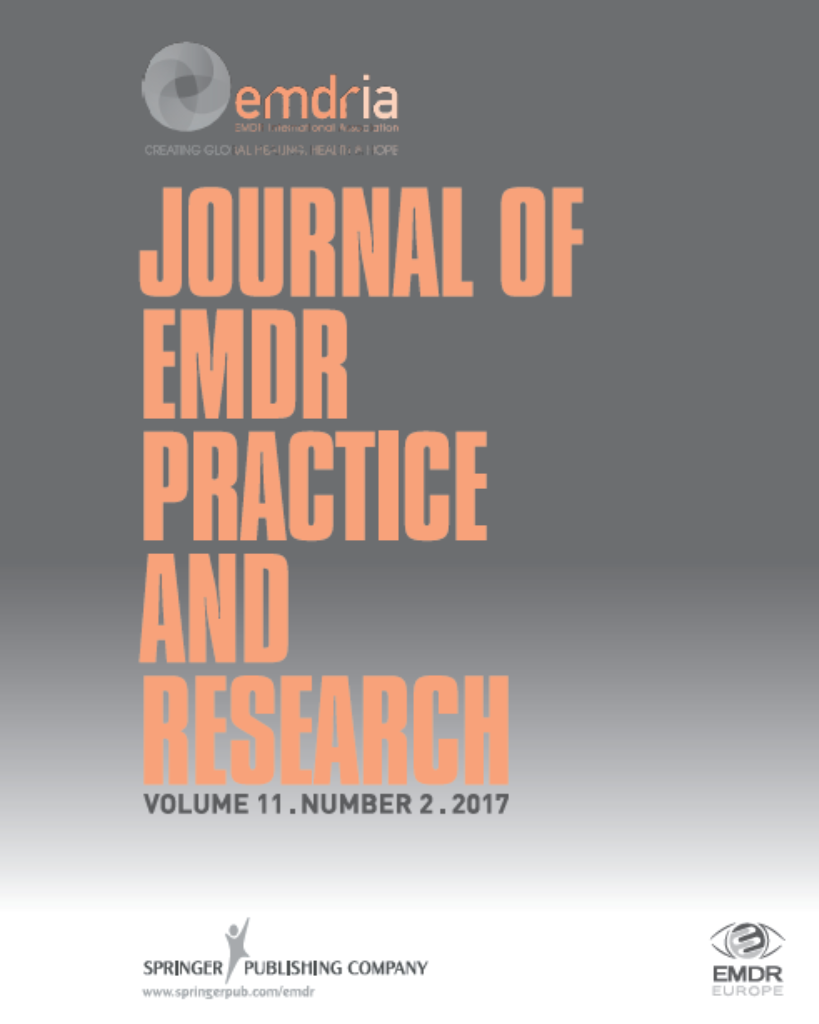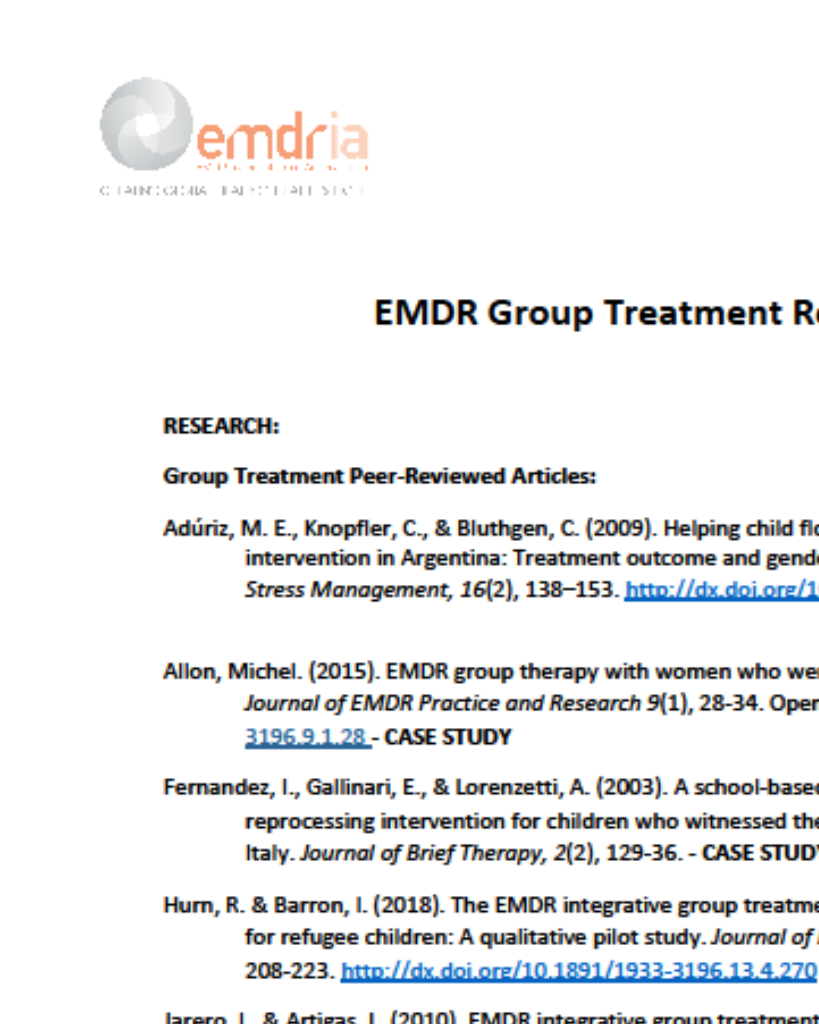Randomized Controlled Trial: Provision of EMDR Protocol for Recent Critical Incidents and Ongoing Traumatic Stress to First Responders
The EMDR Protocol for Recent Critical Incidents and Ongoing Traumatic Stress (EMDR-PRECI) for PTSD symptoms in active duty first responders.
Article Abstract
“This randomized controlled trial aimed to evaluate the effectiveness of the Eye Movement Desensitization and Reprocessing Protocol for Recent Critical Incidents and Ongoing Traumatic Stress (EMDR-PRECI) in reducing posttraumatic stress disorder (PTSD), anxiety, and depression symptoms related to the work of first responders on active duty. Participants were randomly assigned to two 60-minute individual treatment sessions (N = 30) or to a no-treatment control condition (N = 30). They completed pre-, post-, and follow-up measurements using the Posttraumatic Stress Disorder Checklist for Diagnostic and Statistical Manual of Mental Disorders, fifth edition (DSM-5) (PCL-5) and the Hospital Anxiety and Depression Scale (HADS). Data analysis by repeated measures analysis of variance (ANOVA) showed clear effects of the EMDR-PRECI in reducing PTSD work-related symptoms in the treatment group with symptom reduction maintained at 90-day follow-up with a large effect size (d = 3.99), while participants continued to experience direct exposure to potentially traumatic work-related events during the follow-up period. Data analysis by repeated measures ANOVA revealed a significant interaction between time and group, F (2,116) = 153.83, p < .001, ηP2 = .726 for PTSD, and for anxiety F (1,58) = 37.40, p < .005, ηP2 = .090, but not for depression. A t-test showed a clear decrease for depression symptoms for the treatment group with statistically significant results. The study results suggest that the EMDR-PRECI could be an efficient and effective way to address first responders’ work-related PTSD, anxiety and depression symptoms. Future research is recommended to replicate these results and to investigate if symptom improvement also results in the reduction of physical health symptoms and early retirement for PTSD-related reasons among first responders.”
—Description from publisher
Article Access
Open Access
Jarero, I., Schnaider, S., & Givaudan, M. (2019). Randomized Controlled Trial: Provision of EMDR Protocol for Recent Critical Incidents and Ongoing Traumatic Stress to First Responders. Journal of EMDR Practice and Research, 13(2), 100–110. https://doi.org/10.1891/1933-3196.13.2.100
About the Journal
The Journal of EMDR Practice and Research is a peer-reviewed publication devoted to integrative, state-of-the-art papers about Eye Movement Desensitization and Reprocessing. It is a broadly conceived interdisciplinary journal that stimulates and communicates research and theory about EMDR, and their application to clinical practice. The Journal of EMDR Practice and Research is the Official Publication of the EMDR International Association.
Date
June 1, 2019
Creator(s)
Ignacio Jarero, Susana Schnaider, Martha Givaudan
Topics
PTSD, Tragedies
Client Population
First Responders/Healthcare Workers
Practice & Methods
Group
Extent
11 pages
Publisher
Springer Publishing Company
Rights
Copyright © 2019 EMDR International Association
APA Citation
Jarero, I., Schnaider, S., & Givaudan, M. (2019). Randomized Controlled Trial: Provision of EMDR Protocol for Recent Critical Incidents and Ongoing Traumatic Stress to First Responders. Journal of EMDR Practice and Research, 13(2), 100–110. https://doi.org/10.1891/1933-3196.13.2.100
Series
13
Installment
2
Audience
EMDR Therapists
Language
English
Content Type
Article, Peer-Reviewed, RCT
Original Source
Journal of EMDR Practice and Research
Access Type
Open Access





